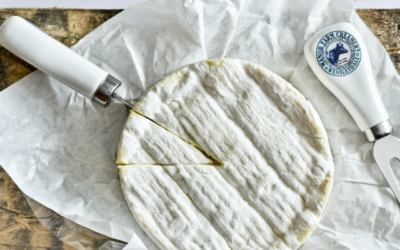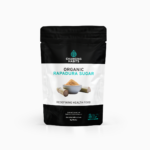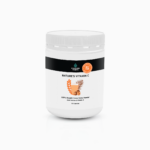I’ve been a mother for 25 years coming this May 17th and I’ve prided myself on feeding my children the best food. Once I finished breast feeding my three children, I made all their food from scratch. I had the one ingredient pantry where everything in my pantry was one ingredient and I could cook up a storm. I had all the basics…organic wheat and other grains and flours, organic sugar, sea salt, nuts, seeds, cacao, fruits, vegetables, legumes, meat, fresh unprocessed dairy, eggs, herbs and spices.
Yes, I was the sneaky organic cook. I made pizza bases with grated carrot and zucchini in the homemade base, my pasta was organic, I made pancakes, muffins and fresh bread for my children to enjoy always using the best quality ingredients. The diet was varied and my children were healthy. None of them have ever had an antibiotic and they are now all in their 20’s. My health was also good.But at the age of 50, I started to get some aches and pains and my weight was slowly increasing yet I was still eating the same foods. I thought perhaps that this was 50. I also noticed that my youngest daughter had put on a little weight and my son was losing his hair at a very young age.
How could this be? We were not like the rest of the population – we didn’t eat packaged foods filled with additives, preservatives and flavourings. We didn’t consume fast foods and we lived an active healthy lifestyle. I prided myself on the fact that we were all healthy. There was something not right and I wanted to get to the bottom of the problem.
I went on the Fat Loss Protocol and when I started to re-enter foods back into the diet, I noticed that wheat (organic) was the problem. How could this be? As agriculturists, we have been eating wheat for well over 10,000 years, maybe even longer. How could it be a problem and be causing inflammation and pain in my body? So I went looking and I read everything I could on wheat and grain. I went back in history, then I read a book called Cereal Grain – Humanities Double Edged Sword by Loren Cordain. Although it was very interesting and it linked diseases to wheat, I still couldn’t believe that this ancient grain that was made into bread and was the staff of life could be a problem to health.
Then, in July of 2012 I read Dr William Davies book Wheat Belly. As I read his book, I became sickened by what modern technology had done to the wheat grain and how it was affecting health in an extraordinary way. From Wheat Belly, I found Dr O’Bryan, Dr Osborne, Dr Marsh, Dr Perlmutter, Dr Fasano, Dr Vorjdano and many more all saying much the same thing. I also talked to wheat farmers in Victoria and learnt more about the changes in the wheat grain in the 1980’s.
Wheat had been changed, it had been manipulated and hybridised for easier mechanical harvesting and higher yields. While this seemed like a good thing for the farmer and for countries that were starving like India, there was something that the scientist failed to do and that was test this new wheat grain on human and animal consumption.
The new hybridised wheat grain was introduced into India in the 1970’s and into Australia and the rest of the western world, except for many parts of Europe in the 1980’s. This new hybridised wheat grain was infiltrated into our food supply and has been a mainstay in much of our food since that decade. Wheat is a very big part of the diet…most people eat it at every meal, it is in medications, vitamins and minerals, hair care products, lipstick and hair colour. Many additives are made from wheat and we now have several wheat based sugars in the food supply. It’s a food that is probably eaten by everyone whether they want to eat it or not. If you have the typical diet of breakfast cereal, toast, sandwich, muffin, crackers and pasta then you are eating this new wheat many times a day.
This new wheat has many things different about it then traditional wheat, it has many more chromosomes, in fact it is known as a polyploid, it has what is called a super starch (amylopectin) and super protein (gluten). It may be grown organically or conventionally but it is still the same. The neolithic super starch and protein are the things that cause the problem with our evolutionary body. The starch boost blood glucose more then white sugar and the protein (gluten) is not easily digested and thus causes havoc with our digestive systems and immune system.
Not only has this modern wheat been implicated in the growing diabetes, obesity and heart disease rates but it is also emerging as the perpetuator of many autoimmune diseases including type 1 diabetes, hashimotos, osteoporosis, multiple sclerosis, dementia, arteriosclerosis, lupus and many more. In fact, it is linked to 200 plus autoimmune diseases.
Nobody can deny that if it wasn’t for wheat and grain, civilisation would not be what it is today, the world would not be able to sustain a population of seven billion and growing. Grain has been a part of our life, it is part of our religious ceremonies, it is part of many meals and creates foods that we all have learnt to love.
So it’s not so much that wheat is bad, it is what they have done to wheat, it is the many things that have wheat in it, it is the refining, processing and bastardisation of this ancient grain. I love history, I love going back and seeing where traditions began, how we think the way we think, where food traditionally came from. One of my favourite breads in my cook book is Ezekiel bread or bible bread. Little did I know that the wheat I was making my bible bread with was not the wheat of bible times.
Einkorn – An Ancient Wheat Grain
Bible bread was made with the ancient grain of Einkorn a vastly different wheat to modern wheat. Einkorn has a very different chromosome number, it is a monoploid, the gluten in the Einkorn grain comes from different genomes on the chromosomes, the starch is not a super starch and it is thought that this wheat grain or grass was used by hunter gatherers to make a type of porridge. It was harvested wild by early man and then as the agricultural revolution began, it was grown by the villagers for food and the making of bread.If you are my age and you remember the 1960’s and 1970’s, you probably didn’t know anyone that couldn’t eat their daily bread or were sensitive to gluten, but by the late 1980’s gluten became a poison for more and more people and with research and knowledge we now know why.
For many of us including myself, the damage has been done to my gastrointestinal tract and my immune system does not like the modern gluten. I’ve been off wheat and anything that contains wheat as well as anything that contains gluten for nearly two and half years now. On occasion, I order something at a restaurant notifying the staff members that I do not eat gluten or wheat, but sometimes the food is obviously contaminated and my lower back begins to ache telling me immediately I’ve eaten something my body doesn’t like.
I wish I knew what I know now, 25 years ago when I was bringing my children up. But I didn’t and I have to know that I did the best with the knowledge I had. But now that I know better I can do better. My adult children, myself and my husband and anyone who lives with us all stay away from the wheat. My younger daughter has no extra weight on her frame and since my son has gone off wheat, his hair has stopped falling out and has grown back for the most part – I’m not sure if all will grow back but we are hopeful.
Although there is nothing I can do about the past, there is everything I can do about now and the future. I’ve been an educator for 30 years and I want people to become informed as to the quality foods. Einkorn (the ancient wheat grain) has become somewhat of a passion of mine.
Although there has been research done on Einkorn and people with a gluten intolerance have been able to consume the Einkorn gluten without a problem, it is not something that I recommend. If you have a gluten intolerance and you feel better off wheat and gluten, then Einkorn may not be your answer. Dr Vajdano, an absolute expert on gluten and the immune system does not recommend people with known gluten intolerances to eat any gluten, not even a microgram. He says that the immune system could flare up anywhere from 24 hours to four months. In other words, for gluten sensitive people I ask you to be aware that Einkorn has gluten.








Hi Cyndi,
I heard you on the Low Tox Life podcast. Your story about wheat among other things was fascinating. Just read this article as well as I wanted to share the info with my FB community. I can really relate to your experience as my children and I stopped eating gluten about a year ago after seeing a nutrition doctor and having a DNA test done which confirmed we were gluten sensitive.
The results were amazing. My younger son stopped having so many accidents and his reading improved within a couple of weeks. These two things were major. My other son stopped feeling bloated and windy all the time and the aches in my shoulders went away. We, like you eat an organic wholefood diet and we keep away from toxins as much as possible so I too was baffled. I didn’t really understand why wheat was such a problem until I heard you speak and read your article. Thanks for sharing.
Dear Angela
Thank you so much for sharing your families journey with eliminating wheat. It is phenomenal the stories I hear and you have just added to the growing number of people that are understanding how eliminating a food can be one of the most powerful things we do for our health.
Cyndi